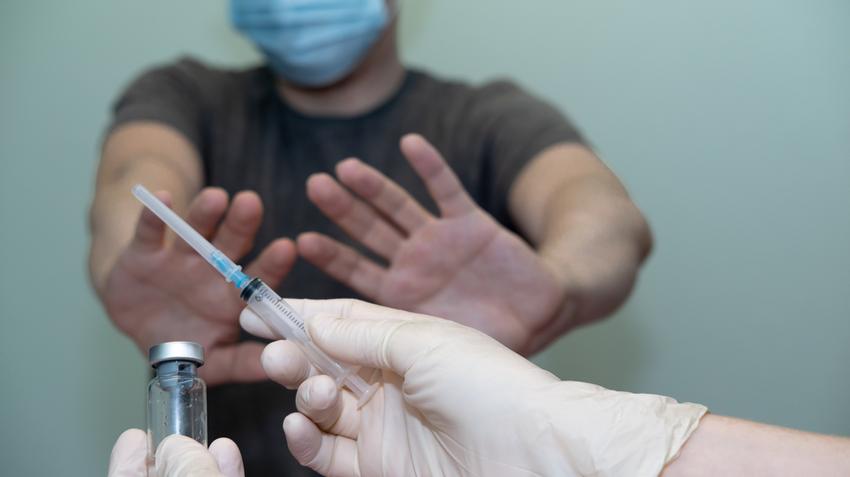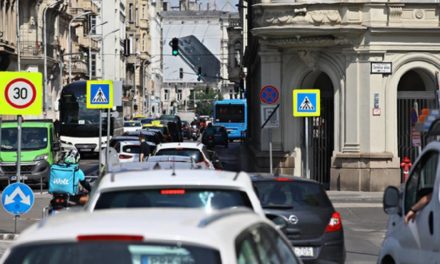Due to the strengthening of the fourth wave of the coronavirus epidemic, people who refuse to be vaccinated against the disease caused by the virus (Covid-19) are banned from more and more areas of everyday life in Germany. According to the Berlin city government's decision on Tuesday, unvaccinated people will soon be forced out of most shops.
The government (senate) of the provincial capital introduced the new, 11th amendment to its decree on protection against the spread of the new type of coronavirus (SARS-CoV-2) that, starting November 27, the unvaccinated cannot participate in retail trade except for basic care.
This means that they can shop, for example, in all grocery stores, from convenience stores to supermarkets, in pharmacies, household stores, and drugstores, but they cannot visit, among others, shoe stores, jewelry stores, and DIY stores. Unvaccinated people are banned from hotels and other commercial accommodations, as well as from the entire institutional system of adult education, such as folk colleges, music schools and driving schools.
Explaining the decree to the regional public service media company Rundfunk Berlin-Brandenburg (RBB), State Secretary of Health Martin Matz emphasized that the regulations are being adjusted to the decree of the government of the Brandenburg region around the capital, which was also updated on Tuesday, in order to prevent unvaccinated people from Brandenburg from going shopping in Berlin.
At the same time, they will not adopt the contact restriction rule affecting the unvaccinated from Brandenburg - according to which no more than five people can spend time together in the absence of vaccination - because the epidemic is less severe in Berlin, he added. In Berlin and Brandenburg, a series of other rules also limit the freedom of movement and freedom of the unvaccinated. For example, they cannot go to restaurants, cinemas and hairdressers.
The regulations are based on the 2G rule, which forms the basis of the protection system throughout the country, the name of which was formed from the initial letters of two words, the German equivalent of vaccinated and cured (geimpft, genesen). The rule stipulates that only those who have been vaccinated against Covid-19 and those who have been confirmed to have the infection can stay in a closed public space, and those who are not vaccinated cannot even have a recent negative virus test.
A milder version of the 2G is the 3G rule, according to which people who have been tested (mortem), i.e. unvaccinated people with a recent negative virus test result, can also participate in community life. The stricter version of 2G is the 2G-plus rule, which binds the entry and participation of vaccinated and recovered persons to a recent negative test.
On Tuesday, several other provinces also decided on strictures. The provinces in the most serious situation have adopted particularly strict rules that affect not only the unvaccinated, but everyone. For example, after the meeting of the Thuringian government, it was announced that entertainment venues and Christmas markets must be closed, and restaurants can only be open until 10 p.m. Similar measures were recently decided in neighboring Bavaria and Saxony. These three provinces will suffer the most from the fourth wave of the epidemic.
Elsewhere, in North Rhine-Westphalia, Hamburg and Saxony-Anhalt, for the time being, it has only been decided to extend the application of the 2G rule, i.e. to further narrow the scope of movement of the unvaccinated.
In recent weeks, a much stronger wave of epidemics has developed in Germany than the first three. The seven-day infection rate, considered one of the most important indicators - that is, the number of infections registered in one week per hundred thousand inhabitants - set a record for the 16th day in a row on Tuesday, rising to 399.8 from the previous peak registered on Monday, 386.5. The strength of the fourth wave is indicated by the fact that the value of the indicator never exceeded 200 during the first three waves.
According to Tuesday's data from the Robert Koch Public Health Institute (RKI), 45,326 infections were screened with tests in one day. That's up more than 40 percent from 32,048 a week earlier. Together with the new cases, the virus has been detected in the bodies of 5,430,911 people since the beginning of the epidemic last spring. In connection with Covid-19, 309 deaths were registered in one day, and the number of victims of the epidemic rose to 99,433 in Germany.
MTI
Featured image: egeszsegkalauz.hu












